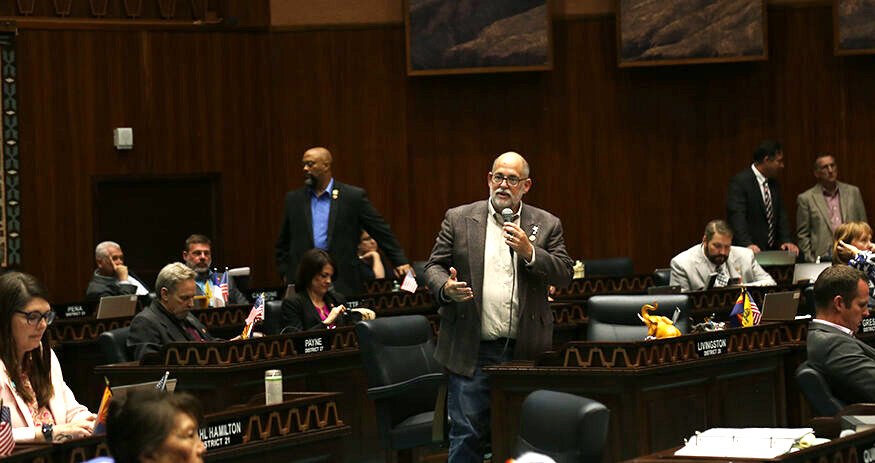Entertainment
Proposed Per Diem Boost Could Double Maricopa County Legislators’ Annual Salaries

Rep. David Livingston, a veteran lawmaker from Peoria, Arizona, has introduced a controversial proposal that could significantly increase the compensation of lawmakers, particularly those residing in Maricopa County.
The measure, scheduled for review by the House Appropriations Committee on Monday, aims to grant a daily allowance tied to 80% of the General Services Administration (GSA) rate for federal travel expenses. This adjustment could yield nearly $200 a day for local lawmakers, raising concerns over the justification for such an increase when they commute to the Capitol.
Currently, these lawmakers receive a daily allowance of $35 seven days a week, despite legislative sessions typically occurring only four days each week. Furthermore, they are already entitled to an annual salary of $24,000, which could potentially be doubled under a separate proposal pending voter approval.
Livingston’s stance highlights his view that the per diem should be regarded as part of lawmakers’ overall compensation rather than solely an expense reimbursement. This sentiment echoes a similar attempt made in 2019, where lawmakers unsuccessfully sought to link their allowances to the GSA rates.
In a prior instance, then-Governor Doug Ducey supported an increase for lawmakers from outside Maricopa County but vetoed measures that would also benefit those from within the county. Ultimately, legislators from the other 14 counties received the full GSA rate, which amounts to $249 a day for their first 120 days of session.
Livingston’s proposed allowance could net each lawmaker close to $24,000, in addition to their salary, over a typical legislative session. The proposal even includes provisions for additional compensation in the event sessions extend beyond the standard timeframe.
Recognizing the political risks of his proposal, Livingston remains optimistic that voters will understand the rationale behind increasing compensation. He referenced the recent resignation of former Senator Eva Burch, who cited financial strain as a driving factor in her departure, emphasizing challenges faced by lawmakers in balancing legislative duties with other professional responsibilities.
Livingston argues that the existing pay disparity between in-county and out-of-county lawmakers constitutes a form of discrimination, asserting that all members perform the same duties and should thus receive equal compensation. However, questions linger regarding the necessity of increased allowances for those who do not incur hotel or meal expenses while serving at the Capitol.
Moreover, even if Livingston garners support from fellow legislators, his proposal still faces potential rejection by Governor Katie Hobbs, who has expressed reluctance towards salary increases for elected officials. Hobbs’ communications director labeled such raises as instances of “budget mismanagement.”
The timing of this proposal has raised eyebrows, particularly as Livingston has been vocally critical of Governor Hobbs’ fiscal policies. In response to Livingston’s critique, Hobbs’ team suggested that if financial mismanagement is a concern, there may be broader issues worthy of investigation.


















